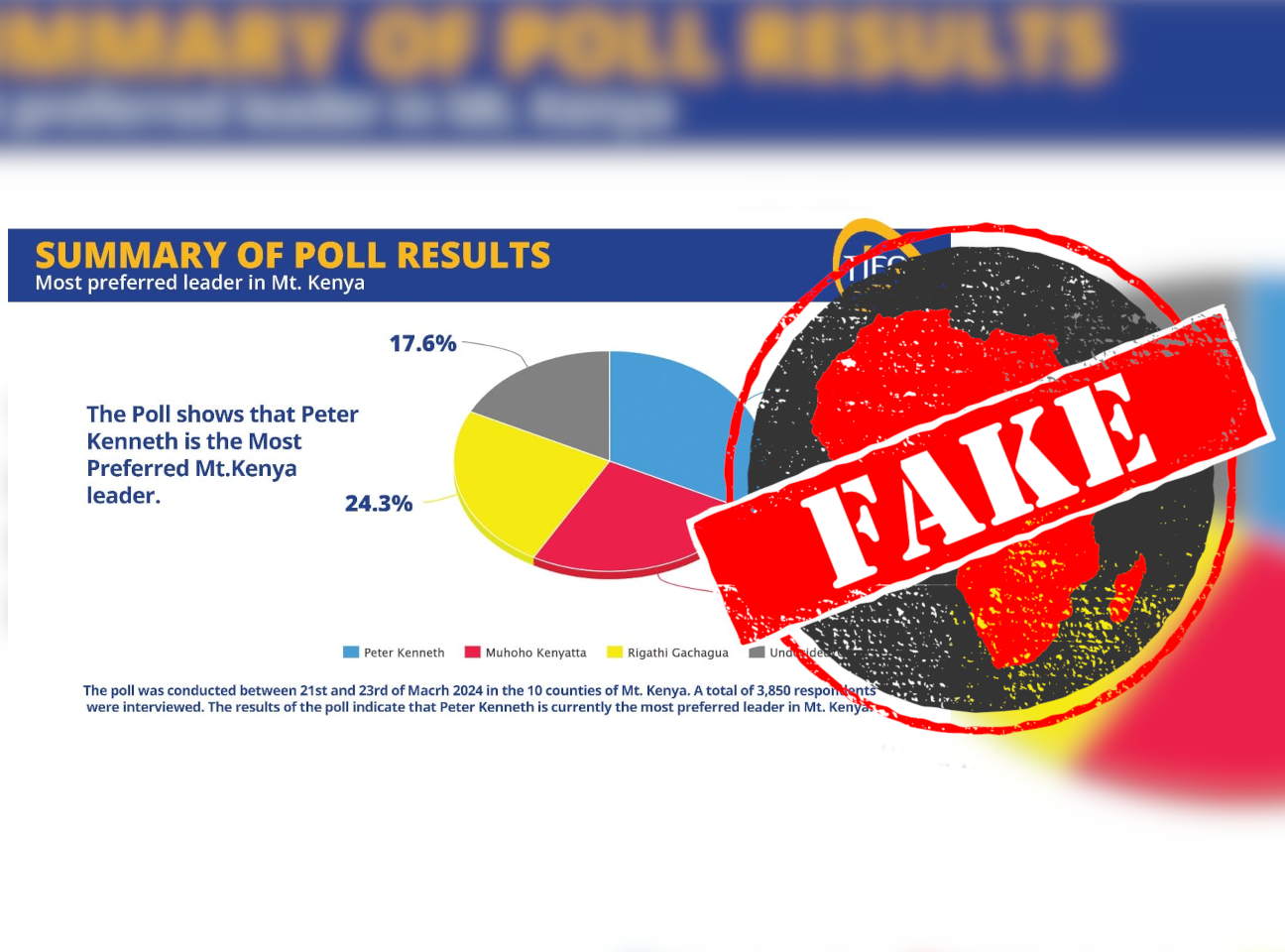IN SHORT: A graphic titled “Most preferred leader in Mt. Kenya” has been circulating on Facebook, attributed to Tifa. But the market research company says the poll is fake.
A graphic circulating on social media in Kenya appears to rank the most preferred leaders in the country’s Mount Kenya region.
The graphic features the name and logo of Trends and Insights for Africa (Tifa Research), a polling and market research company. It also lists three of the region’s leaders in order of popularity.
Mount Kenya, or Mt. Kenya, refers to a vote-rich political construct of the Kikuyu, Meru and Embu communities, and the counties where these communities are the majority.
Former Kenyan lawmaker Peter Kenneth is ranked first with 32.4% of the vote, followed by Muhoho Kenyatta, the son of Kenya’s first president Jomo Kenyatta, with 25.7%. Deputy president Rigathi Gachagua is in third place with 24.3%, while 17.6% of the vote was undecided.
The graphic reads, in part: “The poll was conducted between 21st and 23rd of Macrh (March) 2024 in the 10 counties of Mt. Kenya. A total of 3,850 respondents were interviewed. The results of the poll indicate that Peter Kenneth is currently the most preferred leader in Mt. Kenya.”
The graphic has also been posted on X (formerly Twitter) and Facebook here, here, here, here, here, here, here and here.
While Tifa conducts surveys to gauge public opinion on the performance of political leaders, fake polls have been used in the past to distort public perceptions.
But is there a Tifa poll on the “most preferred leader” in Mount Kenya? We checked.

‘Fake poll alert’
The research agency usually releases its findings to the media, but this survey hasn’t been reported by any credible outlets.
We searched the agency’s website, X account and Facebook page and couldn’t find any information about a 2024 poll conducted for the preferred leader of Mount Kenya.
On 10 April, Tifa said that the poll was fake. It posted the circulating graphic on its X account with the word “fake” stamped on it.
“Fake News Alert! The results attached are fake. Don't be misled. For authentic polls, visit our official website http://tifaresearch.com #FactCheck #StayInformed,” the research firm wrote.
Republish our content for free
For publishers: what to do if your post is rated false
A fact-checker has rated your Facebook or Instagram post as “false”, “altered”, “partly false” or “missing context”. This could have serious consequences. What do you do?
Click on our guide for the steps you should follow.
Publishers guideAfrica Check teams up with Facebook
Africa Check is a partner in Meta's third-party fact-checking programme to help stop the spread of false information on social media.
The content we rate as “false” will be downgraded on Facebook and Instagram. This means fewer people will see it.
You can also help identify false information on Facebook. This guide explains how.


Add new comment